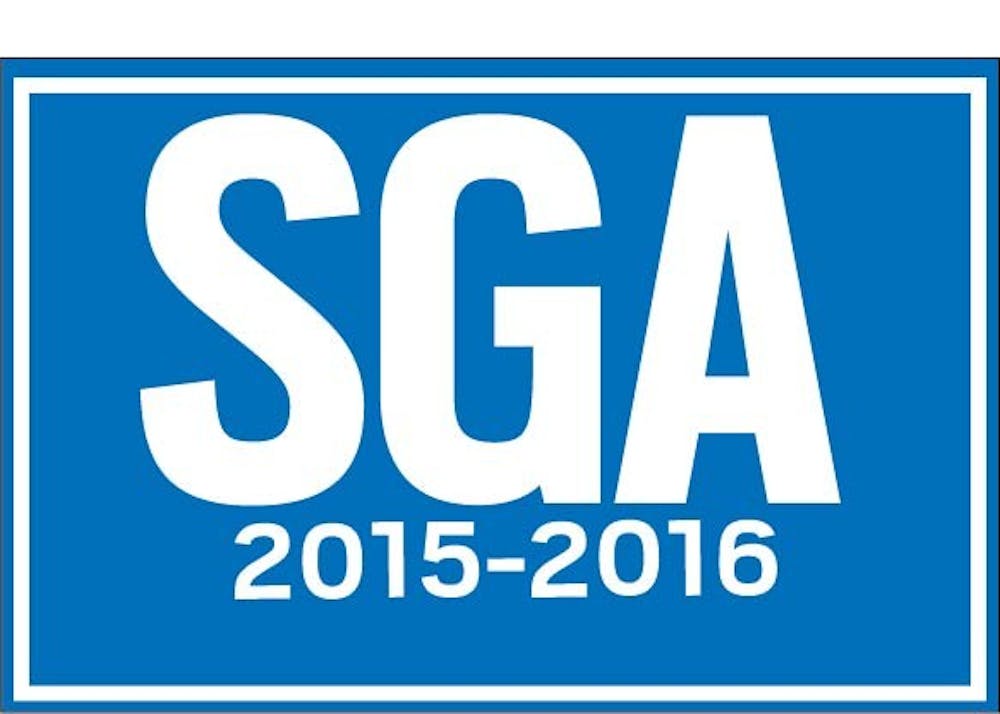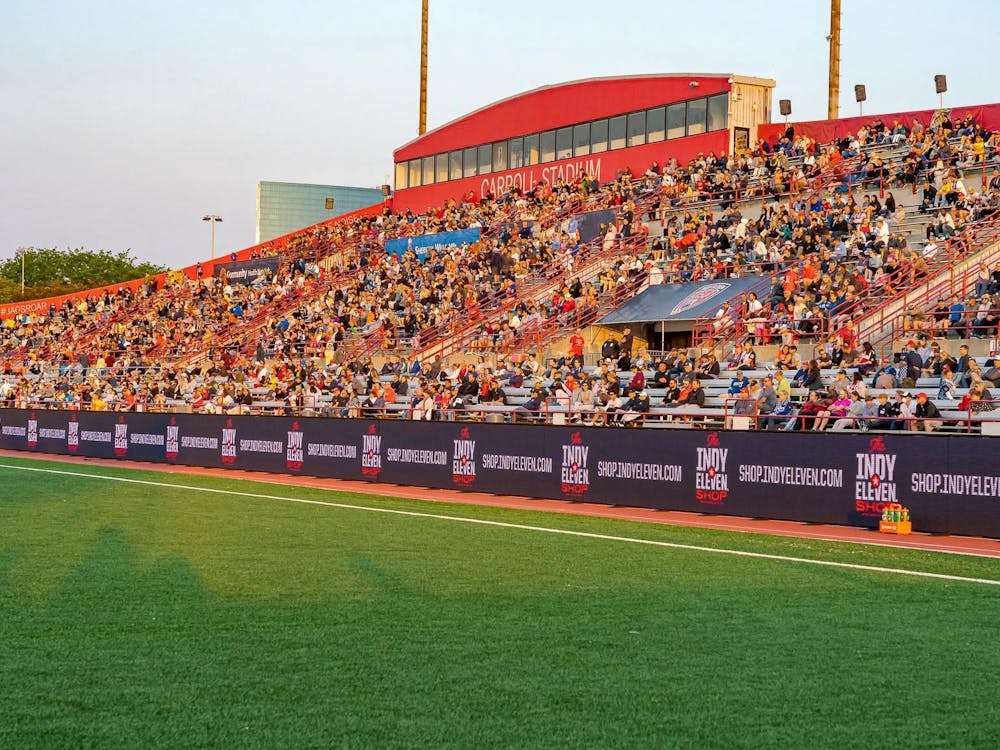It’s not surprising some people have a difficult time following politics, especially around elections season.
Unless you’re a political science major, government guru or fairly opinionated, student elections might not hold much appeal to you.
For the Student Government Association, election season is underway, and student participation is a crucial aspect in having a successful season.
“The biggest goal that I have for this year is to just get as many students get involved as possible, and to have as many students as possible understand the importance of what these SGA elections are here to determine,” said Casey Miller, SGA Elections Board chair. “These students that are running for office, they are paid to do their job, to do these positions they are elected for and have real influence on our campus.”
There are many parts involved with the SGA elections, so here's a quick breakdown.
Approving the elections code
What is the elections code?
The elections code is a document governing the rules and regulations of election season. Candidates must follow certain guidelines throughout the season — particularly during campaigning. The Elections Board continuously monitors the code.
This year's code changes:
In the past, more significant changes have been made to the code, but this year, the elections code only had two minor changes, Miller said.
- The vice presidential and presidential debate will be combined. This means there will only be two debates for students to attend, rather than three like previous years.
- The Elections Board will be interpreting the elections code and posting standing rules as to what the elections code mean. This is to help candidates not get penalized and fined for misinterpretations during election season.
Elections Board
Who are they?
The Elections Board is comprised of seven members who are responsible for monitoring campaigning. These positions include:
- Elections Board Chair — oversees conduct and is accountable for the board's operation (Casey Miller, senior journalism major)
- Sheriff — responsible for assessing fines and monitoring campaigns (Carrie Ann Staggs, junior political science and legal studies major)
- Secretary — documents board meeting minutes and handles all official documents (Carli Hendershot, senior political science major)
- Treasurer — monitors financial statements for candidates and notifies them of fines (Malik Ojuri, junior professional selling major)
- Debate Coordinator — responsible for planning and running the two debates (Shelby Ward, junior telecommunications major)
- Press Secretary — contacts university media outlets concerning actions of the board (Sam Ralston, junior communication studies major)
- Voting Member — holds voting rights within the board (Landon Pease, sophomore accounting and economics major)
How are members chosen?
First, the SGA president (Jack Hesser, this year) chooses a chairman, and SGA senate has to approve them.
If the chairman is approved, they then have the responsibility of seeking out others who are qualified to serve on the board. Once chosen, they must be presented to the senate and voted on for approval. If they are approved with a two-thirds vote, the new board is instated and assumes its duties.
Elections packet released
How can students run?
Once the elections packet is available, students can start collecting signatures to run as a slate for executive board or as a senator. Packets are available now and are due Feb. 12.
However, students are not allowed to start advocating their candidacy until after the nomination convention, which will be on Feb. 16.
What is a slate?
A slate is a group of four students who run on the same platform points for executive board. If a student wants to run for any position on the executive board, they have to be a part of a slate.
There are certain requirements to be on a slate. Each member must:
- have completed three semesters at Ball State
- have a cumulative grade point average of 2.8
- have full-time status at time of nomination
Nomination Convention
What happens at the convention?
This is where students who have turned in their packets can be nominated by someone outside their slate. This can be anyone, but Miller said it is commonly their campaign manager.
Once nominated, the Elections Board approves their nomination. As long as all the requirements are fulfilled, the candidates are officially in the race. They may begin campaigning following the closing of the convention.
Campaigning
What are they allowed to do?
Candidates are permitted to both fundraise and promote their platforms as long as it all falls within the elections code. If they violate the code, candidates will be reviewed by the Elections Board and fined for their violations. Campaigning lasts two weeks.
Presidential/Vice Presidential Debate and All Slate Debate
These debates are unstructured and left to the debate coordinator to plan.
The Elections Board chooses an outside student to be the moderator. This is the time where candidates get to debate and voice their specific platform points and tell students why they should elect them.
They can cover small, detailed points all the way to large, broad overviews of their hopes for student government.
Voting and winners
How do students vote?
Voting will be available online from 8 a.m. on Feb. 29 until 5 p.m. on March 1. The winners will be announced shortly after voting closes. After the winners are announced, the Elections Board immediately dissolves and no longer has power within SGA.
Inauguration
Inauguration is at 3:15 p.m. on April 20. Immediately following inauguration, acting slate Atlas will no longer be the acting executive board, and the power transfers to the new slate.
Hesser said this year will be slightly different than past years.
There will be one final senate meeting after inauguration that will be conducted by the new executive board. He said this is a way to help them get on their feet before senate is dismissed for the Summer Semester.





